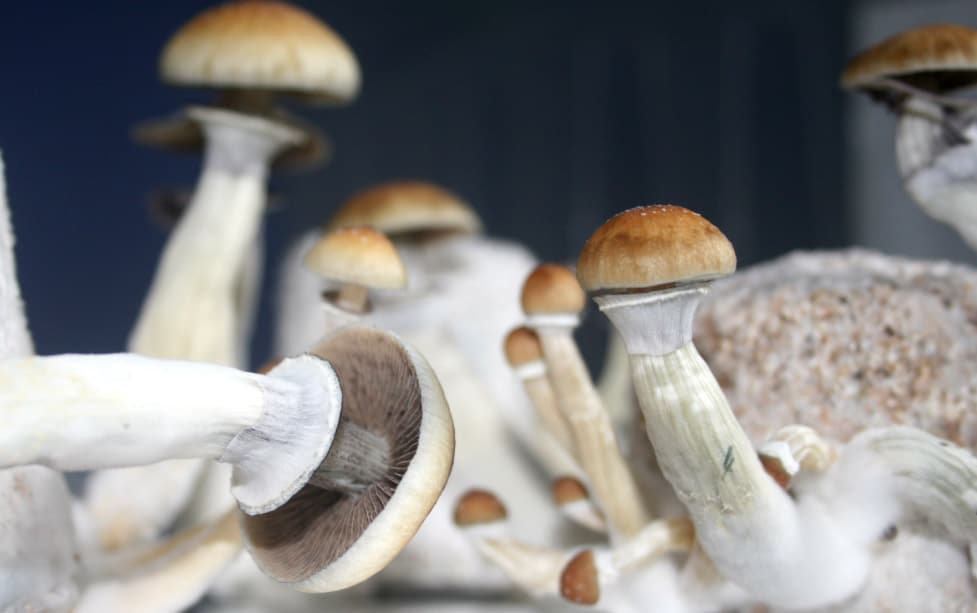The governor of Colorado has signed a bill to create a regulatory framework for legal psychedelics under a voter-approved initiative.
About three weeks after the legislature passed the measure from the Senate president, Gov. Jared Polis (D) signed the legislation into law on May 23.
The bill will set up regulations for a psychedelics legalization law that voters passed at the ballot last year, largely focusing on rules for using the substances in licensed healing centers under the guidance of facilitators. But the plan has received mixed feedback from advocates and stakeholders.
The ballot measure called for the creation of an advisory board to develop regulatory recommendations to inform more holistic legislation covering such access, but as that process continues, the bill was introduced and passed last month to establish rules.
There will be a pathway for record-sealing for people with prior convictions for psychedelic-related activities that have been made legal.
The legislation establishes policies on “healing centers” where adults 21 and older will be able to receive psychedelic treatment; tightens up rules on cultivation and facilitators; creates licensing requirements; dictates state agency regulatory responsibilities; and imposes penalties for unsanctioned activities.
Here are some of the key components:
* The bill maintains the voter-approved ballot measure’s policy of placing no limits on personal possession of psilocybin, ibogaine, mescaline (not derived from peyote), DMT and psilocyn by adults 21 and older.
* Public consumption of psychedelics and underage use will be punishable by a $100 fine.
* Adults can only cultivate natural psychedelics, and that activity will need to be at a private residence in an enclosed space that cannot exceed 12 by 12 feet—unless within a locality that enacted a policy allowing larger grows. Cultivating beyond prescribed limits will be punishable by a $1,000 fine.
* There will be a pathway for record-sealing for people with prior convictions for psychedelic-related activities that have been made legal.
* A new Division of Natural Medicine under the Department of Revenue will play a central role in regulating the therapeutic program and issuing licenses for cultivators, manufacturers, testing facilities and healing centers. That’s one difference from the initiative, which gave primary responsibilities to the Department of Regulatory Agencies (DORA).
* A federally recognized American tribes and Indigenous community working group—which was not contemplated in the ballot initiative—will be created within DORA to identify and address unintended consequences of the reform, particularly as it concerns the possible commercialization of psychedelics and religious or spiritual exploitation of Indigenous people.
* The legislation clarifies that synthetic psychedelics are not permitted. And possessing psychedelics with “hazardous materials” like solvents will be considered a Class 2 felony.
* Initially only psilocybin and psilocyn can be administered at healing centers, but regulators can later add additional psychedelics. The bill differs from the ballot measure by making it so regulators will be able to authorize the supervised use of ibogaine at the facilities at any time, rather than waiting until at least June 1, 2026, as is the case for mescaline and DMT.
* There will be four categories of licenses: healing centers, cultivation facilities, product manufacturers and and testing facilities.
* The bill maintains the ballot measure’s provisions to block localities from banning healing centers, but says they may enact rules governing time, place and manner of operations.
* The deadline for regulators to start accepting and reviewing license applications is pushed back from September 30, 2024 to December 31, 2024.
* Licensed psychedelic businesses will be able to deduct expenses from their state taxes, in a partial workaround to the federal 280E provision.
“Now that SB 290 has become law, Colorado is on the right track to create a safe, effective and equitable psychedelic therapy system for Coloradans who are struggling with mental health conditions,” said Tasia Poinsatte, director of the Healing Advocacy Fund of Colorado, in a May 24 press release. “Throughout the legislative process, we worked hard to protect the spirit of Prop. 122 and maximize the healing potential of psychedelic medicines for Coloradans in need.”
Will Van Derveer, a psychiatrist and co-founder of Integrative Psychiatry Centers, said that “the new law will help doctors like me provide more options to patients who are trying to heal.”
The bill has received mixed reactions, with some advocates strongly opposing the plan because of what they consider to be excessive regulations.
The legislation’s findings section notes that “although there may be tremendous potential in utilizing natural medicine for managing various mental health conditions, healing, and spiritual growth, this potential must be appropriately balanced with the health and safety risks that it could pose to consumers as well as the cultural harms it could pose to indigenous and traditional communities that have connections to natural medicine.”
“Considerable harm may occur to indigenous people, communities, cultures, and religions if natural medicine is overly commodified, commercialized, and exploited in a manner that results in the erasure of important cultural and religious context,” it says.
The bill has received mixed reactions, with some advocates tentatively supporting the basic framework and others strongly opposing the plan because of what they consider to be excessive regulations.
Meanwhile, Colorado lawmakers also sent bills to the governor this month that would allow online marijuana sales and bolster protections for professionals who use cannabis in the state.
Photograph by Walter Henrique Pedron Moschen via Wikimedia Commons/Creative Commons 3.0
This story was originally published by Marijuana Moment, which tracks the politics and policy of cannabis and drugs. Follow Marijuana Moment on Twitter and Facebook, and sign up for its newsletter.





Show Comments